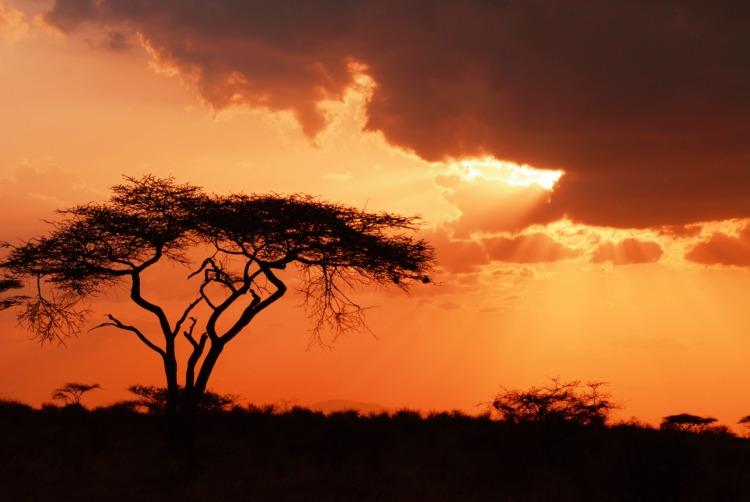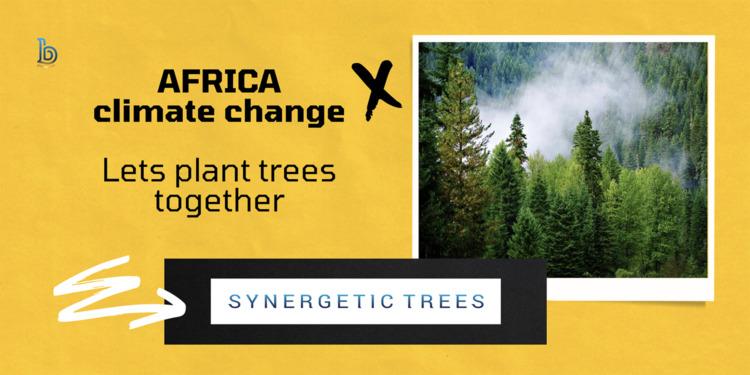On the eve of World Environment Day, the topic of climate change has become a major subject matter for the developed world and the developing world. Africa is by far one of the lushest continents being ripe for vegetation and the key enabler to save the planet. The UN Sustainable Development Goals seeks to promote sustainability via a global collective. In light of that, the Billion Tree Initiative is a new commitment by Synergetic Trees and one that is headed by its founder Dr. Bahadur Bahadur to drive global sustainability.
“Twenty-five years ago, people could be excused for not knowing much, or doing much, about climate change. Today we have no excuse.” – Desmond Tutu
Accordingly to Dr. Bahadur, CEO of Synergetic Trees (ST) is a global network of teams focused on carbon sequestration by planting and caring for trees in the long term. Carbon sequestration is any process that captures carbon dioxide (CO2) from the air and binds it somehow back into a solid form. This is done so that all the excess CO2 we have pumped into the atmosphere in the past can no longer cause such a problem for the Earth and its inhabitants.
Trees are naturally very effective at carbon sequestration and they have so many other advantages. The main aim of ST is thus to go one step further than just being carbon neutral. Instead, we are passionately working to achieve a carbon-negative situation.
Less carbon in the atmosphere than we currently have will be extremely beneficial for animals and particularly our oceans and its creatures. It will also help with food security and prevent the devastating effects of climate change on human life, he passionately stated.
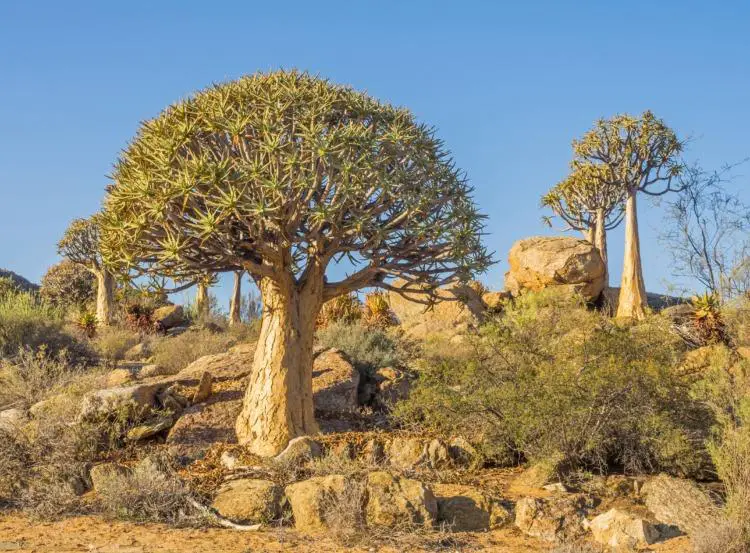
Planting A Billion Trees Begins with One!
He makes further claim that planting a billion trees sounds very ambitious, but we are an enthusiastic team, and we are not alone in our endeavor. We need your help to make a real impact in time. We don’t simply plant seeds or saplings. We ensure forests are established and protected for future generations. “We are here for the people of the world, they are not alone”, stated Bahadur.
Trees are amazing. They help clean up the air we breathe and filter our water. They even attract rain and provide homes for over 80% of the world’s land-based biodiversity. A quarter of our medicines use ingredients from trees and much of our food comes from trees.
Trees also help relieve stress. Think about how much better you feel in a green park compared to stressful urban areas. It seems we need trees much more than they need us. But that’s not true anymore. Sadly, we have abused trees as a natural resource and it’s now our responsibility to save them and ourselves in the process.
Trees and the endless products we get from them also provide an income source for over 1.6 billion people. It’s unlikely you will go a single day without using or consuming something that came from a tree.
Also Read: Can Conservation Agriculture boost Africa’s Food Security
Worldwide, our approach to trees has changed dramatically, especially in the last five years. People now see trees as much more precious than previous generations. There is a social fervor for tree-planting the like of which we have not seen before.
Every year, an area of forest four times the size of Belgium is lost across the globe. We also have been replacing only 50% of the trees that we cut down. As a result of this and past deforestation, we have less than 25% of our primary natural forests left. Excessive deforestation was started by and is in some ways still a legacy of the colonial exploitation we currently need to deal with. Working to preserve our trees is a part of the decolonial project.
This is cause for urgency on our part. However, Africa is sleepwalking into disaster when it comes to climate change. We must act urgently to address it in Africa and trees are a critical part of the solution, stated with eagerness.
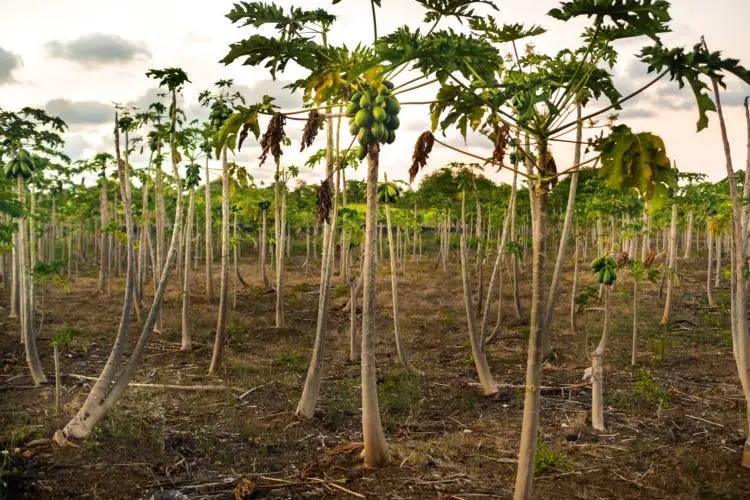
Climate Change in Africa
Even though Africa contributes less to the problem overall, we are at greater risk because climate change is a global crisis. It is critical that we push for ethical practices, considering how vulnerable the majority of Africans are.
In combination with the Covid-19 pandemic, climate change is pushing back hard against the steady economic progress African nations have made in recent decades. The fall in GDP will be caused in part by serious damage to the agricultural sector. It was estimated that African economies will lose about 15% of their GDP in the next decade, but this was before the pandemic hit. We now also have to contend with the immediate costs of the pandemic as well as the increasing costs of climate change.
Climate change also creates natural disasters and destroys housing. The pandemic is exacerbating all these problems. This puts our food, jobs and lives at stake. The populations most at risk due to climate change and Covid-19 are the same groups.
One critical problem we face as a result of climate change is reduced rainfall. Africans depend heavily on rainfall in food production. No rain means even harder times for subsistence farmers and high prices for everyone else.
Climate systems are large-scale and extremely complex but not well enough understood. Tampering with our weather is foolish and we do not know just how bad climate change is going to be in future. The most serious rainfall decreases worldwide are predicated to affect Northern and Southern Africa.
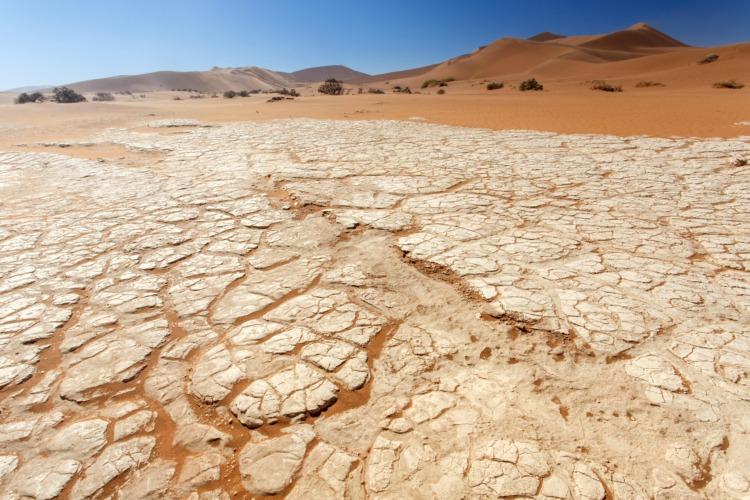
High temperatures and drought will continue to put most of our crops at risk. Hot areas are heating up more and dry areas are losing their precious water supplies all the time. We can expect reduced food production and even higher prices than ever before. Climate change is also increasing the damage of plant pests and diseases to crops, he when on stating.
Flooding elsewhere in the world destroys agricultural infrastructure as well as homes. Individual households in low-income areas most at risk of food insecurity, drought or flooding will suffer the most and their lives are increasingly at risk.
Our capacity to find ways to adapt to climate change in time remains very low. Poverty and poor resource access limit people’s options and means they may have no choice but to continue acting in the same way. Governments generally require assistance to prioritize and act on climate change.
At the same time, funding available for projects to reverse the climate crisis in Africa is insufficient compared to more developed nations. Funding is difficult to secure and teams of people with the right skill sets need to work together to apply for and secure funding as well as implementing successful projects. That is why we need your support at Synergetic Trees in making a global impact. We can and will be part of the solution.
We also need to take into consideration how climate change puts human health at risk. Higher temperatures and changes in rainfall patterns can negatively affect population health in Africa. Biting insects breed excessively in hotter, wet conditions. Cases of insect-borne diseases can increase dramatically.
Also Read: Tanzania plans to revive Palm Tree Planting
Some serious diseases that we have been making some progress in controlling will be on the rise. This includes malaria and Zika in particular. But dengue fever, yellow fever, and tsetse fly sleeping sickness also pose a major problem if we are unable to act in time.
More than 9 in 10 deaths from malaria occur in Africa and this happens often when there has been unusually heavy rainfall. The East African highlands are becoming a new malaria area because of weather changes that allow mosquitoes to thrive where they once could not.
Despite all the challenges, climate change also presents an opportunity to leverage the strengths of Africa and its people. Our equatorial forests serve as natural and safe “carbon sinks”. Carbon sinks store carbon and lower the concentration in the atmosphere. The two most important carbon sinks are plants and the ocean.
However, aquatic life is suffering from higher carbon levels whereas trees are less negatively affected. Planting trees can help save our struggling oceans. Solar power is one affordable and renewable energy source that can replace wood in Africa and prevent deforestation.
Jay Inslee stated that “We are the first generation to feel the sting of climate change, and we are the last generation that can do something about it.” Wherever possible, we have an individual responsibility to reforest our planet.
ST is working to protect our one and only home through planting trees, creating jobs, and providing mental health meditation. There isn’t another planet like Earth that we have any chance of reaching in time to save ourselves. Now is the time to act to save the Earth. Join us in making this a reality!
For more information, please visit Synergetic Trees!
About Dr. Bahadur Bahadur
Dr. Bahadur is a South African entrepreneur, an expert in entrepreneur development, success coach and a lecturer. Through his tenacity, determination, goal drive and passionate attitude, he has effectively created successful entrepreneurs. Dr. Bahadur is a board member and founder of Synergetic Trees.
He holds a PhD, MBA among other qualifications, whilst servicing as CEO of the Institute 4 Success and the Dean of the School of Entrepreneurship. Having authored the book, “Succeeding with Nothing” selling more than 5000 copies. He is most effective in creating successful people through his tenacity, determination, goal driven and passionate attitude.Having held senior positions as CEO of the Institute 4 Success, Dean of the School of Entrepreneurship, he has authored the book Succeed with Nothing.





